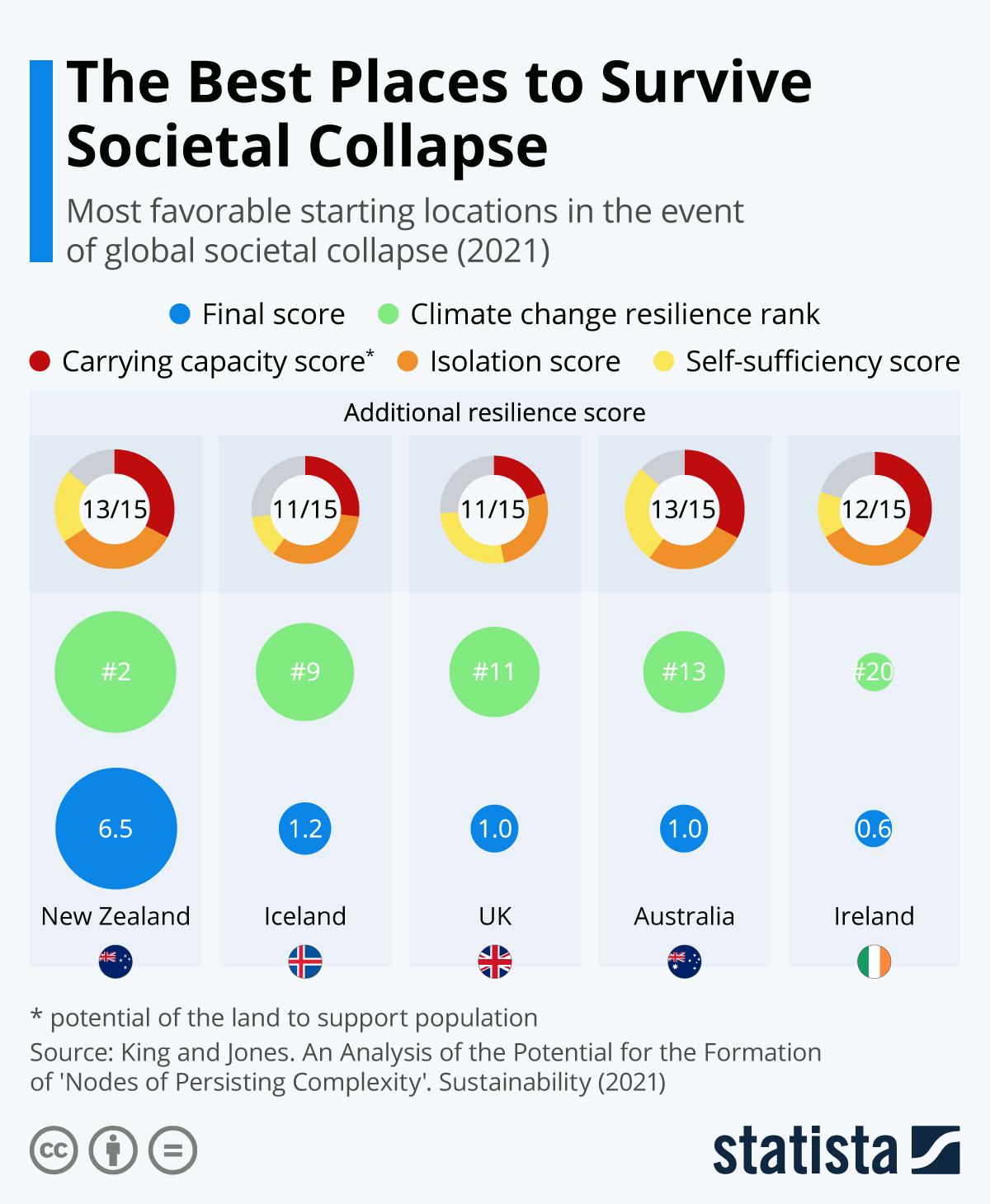Conventional wisdom might identify a lonely island as the best place to survive the apocalypse. A new scientific study now confirms that this isn’t far off the mark. Even the UK makes the cut as far as insular holdouts go, according to the study by scientists at the Anglia Ruskin University in Cambridge published in the journal Sustainability.
The UK’s surprising third place behind more obvious hideouts New Zealand and Iceland and ahead of Australia and Ireland has a lot to do with what scenario the study assumes as possible events of societal collapse, also called events of de-complexification by the scientists. The island’s temperate weather scores high on climate change adaptability, while the country also earns good marks for self-sufficiency.
The perils of climate change are central to the study, which bases 50 percent of its final ranking on the Global Adaptation Index by Notre Dame University, which shows the ability of nations to deal with climate change. The UK comes #11 in the ranking, while earning 4/5 points for self-sufficiency due to its forays into renewable energy and modern manufacturing and also 4/5 points for isolation. The country loses points opposite others in the top 5 for carrying capacity, the ability of the land to support its people, due to the relatively high population of the UK.
New Zealand is the undisputed winner of the ranking, however, largely due to its top score for climate change resilience. The study only admits those scoring at least 10/15 for additional resilience to the final list but provides additional resilience scores for 15 more nations. Dividing them by their rank in the Notre Dame index, Scandinavian nations – especially Norway - also score high, as do Austria and Singapore – both nations deemed well-equipped to deal with climate change.





















